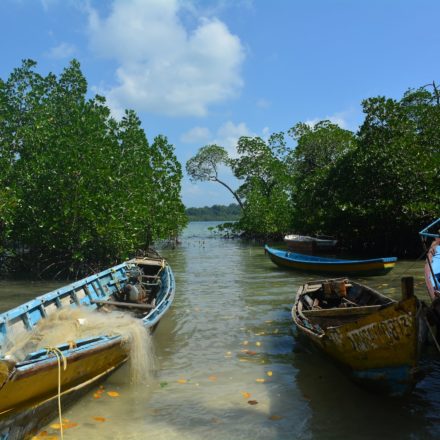 Minister of Natural Resources and Environment H.E. Mr Varawut Silpa-archa, chairs the committee and announced the news, highlighting the importance of joining the global effort to achieve this ambitious, science-based target, and noting the role that 30×30 can play in combating climate change, preventing future disease outbreaks, growing the economy, increasing the productivity of fisheries, and protecting the rights of indigenous peoples and local communities.
Minister of Natural Resources and Environment H.E. Mr Varawut Silpa-archa, chairs the committee and announced the news, highlighting the importance of joining the global effort to achieve this ambitious, science-based target, and noting the role that 30×30 can play in combating climate change, preventing future disease outbreaks, growing the economy, increasing the productivity of fisheries, and protecting the rights of indigenous peoples and local communities.
Minister Silpa-archa also announced the government’s interest in joining the High Ambition Coalition for Nature and People (HAC), a group of more than 100 countries encouraging the adoption of the 30×30 target in the Post-2020 Global Biodiversity Framework, which is set to be agreed upon at the 15th Conference of the Parties (COP15) to the United Nations (UN) Convention on Biological Diversity (CBD) taking place in Montreal December 7-19, 2022.
Nancy Gibson, executive director of the Bird Conservation Society of Thailand and Thailand representative for the Campaign for Nature, said:
At a time when nature faces immense threats, it is heartening to see Thailand taking steps to join the High Ambition Coalition for Nature and People.
Siriporn Sriaram, president of Love Wildlife Foundation and advisor for Campaign for Nature, said:
It is clear that we cannot address global environmental challenges without a strong commitment to nature conservation.
On Monday, October 10, Thailand’s National Committee on Conservation and Utilization of Biodiversity formalized the government’s support for the global goal to protect or conserve at least 30% of the planet’s land and ocean by 2030, commonly referred to as “30×30.” However, overwhelming scientific evidence shows that conserving at least 30% of our global land and ocean can not only curb biodiversity loss and prevent extinctions but also store carbon, help prevent future pandemics, and bolster economic growth.
Scientists have issued repeated warnings that nature is in a state of crisis, threatened by habitat loss, pollution, overexploitation, invasive species, and climate change. By joining the HAC, Thailand as one of the world’s important biodiversity hotspots could create momentum for biodiversity conservation and effective management for both protected areas and OECMs. The country derives large benefits from its ecosystems, in particular the role performed by its watersheds, river basins, and coastal areas in supporting livelihoods linked to fisheries, recreation, and tourism.
ASEAN countries are home to some 18% of the world’s endangered species, including the Philippine eagle and Thailand’s own helmeted hornbills, all of which continue to lose habitat through deforestation. Thailand’s initiative to support 30×30 is also very important for the work being done in the region to protect the oceans and ensure sustainability for marine ecosystems. The ongoing and rapid loss of natural areas across the world poses a grave threat to the health and security of all living things.
A recent report from the Malaysian Academy of Sciences estimated that Southeast Asia as a whole harbours nature and biodiversity which pumps $2.19 trillion into the regional economy every year. We are grateful to Minister Silpa-archa for his commitment to a better future for our birds — and for all life on earth.” We hope this commitment could inspire other ASEAN countries to join the HAC as well.” It is also home to some 15,000 plant species, representing 8% of the world’s total.
Thailand is one of the most biodiverse countries in Southeast Asia. Should the government’s council of ministers approve the decision, Thailand would join Cambodia, the Philippines, Japan, India, Bhutan, Nepal, Pakistan, Sri Lanka, Bangladesh, Papua New Guinea, and the Maldives as Asian members of the HAC.
We thank Thailand’s minister for this support coming at the right time, just prior to COP-15. This figure could be even higher if Thailand and its fellow Asian governments further prioritize conservation and restoration.
Written by: Supaporn Pholrach (Joom)

